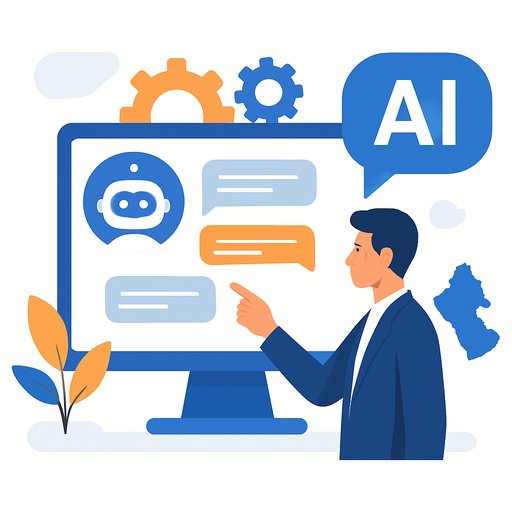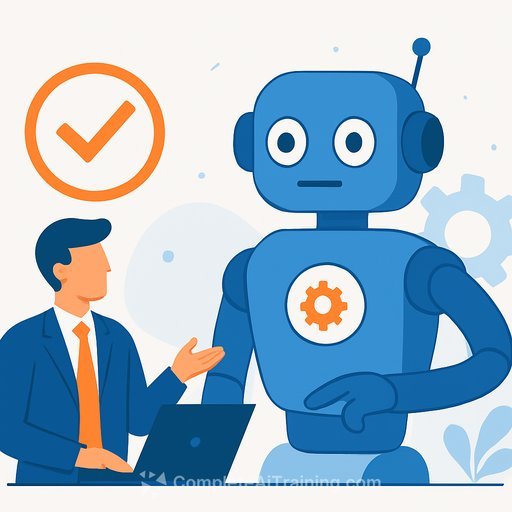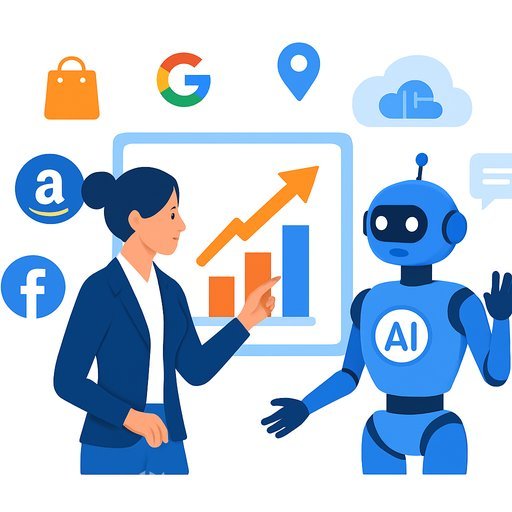Will AI end my customer service career?
No. The job is changing, but it's getting better for people who adapt. AI is removing repetitive work and pushing the role closer to strategy, loyalty, and growth.
If you work in support, your edge is human care, judgment, and the ability to turn a tough moment into trust. Pair that with AI speed, and you become essential.
Where AI is today
AI already handles FAQs, order updates, triage, and routing. With agentic AI, those systems take more steps on their own. A recent Monday.com study says 55% of organizations use agentic AI in service.
Script-driven roles are fading because AI can follow the script. The new job is higher-value: diagnose the real problem, use tools to solve it fast, and feed insights back into the business.
Customer service as a growth engine
Support is moving from cost center to growth lever. That shift means measuring outcomes that matter to the business, not just volume.
- Retention and repeat purchase rate
- Customer lifetime value uplift
- Issue avoidance and deflection by root cause removal
- Advocacy: reviews, referrals, community activity
AI clears the queue. You create value-closing the loop on product issues, rescuing at-risk accounts, and turning moments of friction into loyalty.
Empathy scales what AI can't
Our research shows 64% of customers still prefer human support. That tracks with how people feel in high-stakes situations.
Example: a customer's outfit for a wedding is late. A bot says, "Delivery in two days." Accurate, but it misses the point. A skilled agent acknowledges the moment, then uses AI behind the scenes: instant stock check across locations, route optimization to secure a same-day courier, and a proactive text update. Fast solution, human care.
Let AI handle speed and retrieval. You handle context, emotion, and choices that protect the relationship.
New roles: the rise of the CX/CS data analyst
Generic models won't make your brand stand out. Real impact requires clean data, smart routing, and tuning models to your customers and policies.
- Turn calls and chats into usable data with transcription and intent tagging
- Build evaluation sets and quality rubrics to keep AI answers on policy
- Close the loop: feed recurring issues to product and operations
- Partner with legal and security on data retention, consent, and guardrails (NIST AI RMF)
Agents who can read data, improve processes, and train systems will be the people everyone wants on their team.
Your 90-day upskill plan
Days 0-30: Foundation
- Map your top 20 intents by volume, effort, and revenue risk
- Create a library of 50 real conversations for training and evaluation
- Pilot an AI copilot for knowledge search and suggested replies
- Write empathy-first opening lines for your top 10 high-stakes scenarios
Days 31-60: Pilot
- Automate the top 3 low-risk intents end-to-end with clear fallbacks
- Implement a quality rubric: accuracy, policy, tone, and resolution
- Launch human-in-the-loop review for edge cases and escalations
- Report weekly on CSAT by intent, AHT, FCR, and deflection quality
Days 61-90: Scale
- Expand automation to 6-8 intents and reduce handle time targets
- Publish playbooks for triage, recovery offers, and urgent exceptions
- Run a root-cause sprint with product to eliminate recurring issues
- Coach peers on data capture and feedback that improves AI answers
Tool stack to explore
- Triage and intent detection: NLP-based routing
- Knowledge search: retrieval over policies, FAQs, and order data
- Workflow automation: refunds, replacements, reships, and scheduling
- Voice: transcription, sentiment, and silence detection
- Analytics: topic trends, driver analysis, and churn signals
- Agent copilot: suggested replies, next best action, policy checks
Metrics that matter
- Customer health: repeat purchase rate, retention, LTV
- Experience quality: CSAT/DSAT by intent, sentiment shift
- Resolution quality: FCR, recontact rate, policy adherence
- Efficiency: cost-to-serve per intent, time to empathy, AHT
- Prevention: issue avoidance from product or policy fixes
Operating principles
- Human-first: clear pathways to a person at any high-stakes moment
- Guardrails: define what AI can do, must review, and must escalate
- Feedback loop: every conversation improves routing, knowledge, and policy
- Data ethics: consent, retention limits, and audit trails
Build your edge
Your career grows where empathy meets systems thinking. Learn the tools, keep your human advantage, and aim your work at outcomes the business cares about.
If you want a structured path to level up your skills, explore role-based learning here: Courses by job.
Your membership also unlocks:





